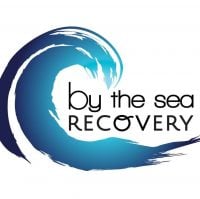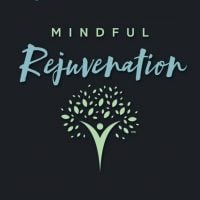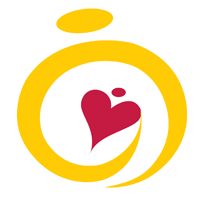Community Research Foundation - Casa Pacifica
Drug Rehab Center in Oceanside, California
At Casa Pacifica, individuals can access comprehensive and personalized substance abuse programs tailored to their individual needs; such as cognitive behavioral therapy, 12-step education, psychotherapy sessions, medication management, and holistic approaches to healing - all under the highest level of quality assurance by CARF accreditation.
About This California Facility
Located in Oceanside, California, Casa Pacifica stands out for its long-term residential care for adults dealing with serious mental illness (SMI) and co-occurring addiction. This facility is unique in its focus on individuals experiencing chronic relapse and/or treatment-resistant disorders, facilitating their gradual reintegration into the community with a tailored, high-intensity program.
- Specialized for Chronic Relapse: Casa Pacifica offers a unique approach to individuals who have struggled with relapse, ensuring tailored support and care.
- Long-term Residential Program: A 12-month residential program provides a stable, supportive environment for recovery, with a focus on independence.
- Comprehensive Aftercare Services: The facility extends beyond initial treatment to include vocational training, employment, and housing assistance for sustained recovery.
Casa Pacifica is accredited by the Commission on Accreditation of Rehabilitation Facilities (CARF), highlighting its commitment to quality and effective care. Accepting Medicare and state and federal funding, the facility ensures its programs are accessible to those in need, focusing on personal recovery and community reintegration.
Here, treatment is offered for a variety of addictions and mental health issues, with a particular emphasis on dual-diagnosis cases. Treatment methods include intensive individual, group, and family counseling, grounded in evidence-based psychotherapeutic modalities. Levels of care span from long-term residential treatment to comprehensive case management and aftercare, facilitating each client's journey to sobriety and mental health stability.
Genders
Ages
Modality
Additional
Accreditations

CARF
The Commission on Accreditation of Rehabilitation Facilities (CARF) is a non-profit organization that specifically accredits rehab organizations. Founded in 1966, CARF's, mission is to help service providers like rehab facilities maintain high standards of care.
Conditions and Issues Treated
An underlying cause often brings about addiction. Mental disorders can lie at the center, such as schizophrenia, bipolar disorder or anxiety disorder. As well as the cause of the addiction, a dual diagnosis by Community Research Foundation - Casa Pacifica helps to treat the addiction. This ensures that after treatment is complete, the patient will not fall back on old practices.
Levels of Care Offered at Community Research Foundation - Casa Pacifica
This center offers a variety of custom treatment tailored to individual recovery. Currently available are Dual-Diagnosis, Inpatient, Outpatient, Residential, with additional therapies available as listed below.
Inpatient rehab programs like what’s offered at Community Research Foundation - Casa Pacifica in Oceanside, CA are ideal for covering all the bases that surround one’s addiction. It’s considered the most comprehensive approach to care for people afflicted with addiction. Patients live in a facility where they have access to therapy and medical care 24/7.
Outpatient treatment is treatment that occurs when a patient is not checked into a rehab facility. The patient may show up for therapy sessions, go through detox and engage in other therapies to help them recover. However, they will do so while they live at home in California.
Outpatient therapy provided by Community Research Foundation - Casa Pacifica is usually recommended as a follow up to inpatient therapy. It helps patients adapt to their normal lives after treatment. In some cases, it can also be an alternative to inpatient treatment. People may choose this route if they are unable to leave their jobs, children or if they don’t have the money for inpatient treatment. However, inpatient treatment is the best way to recover from addiction.
Residential treatment programs are those that offer housing and meals in addition to substance abuse treatment. Rehab facilities that offer residential treatment allow patients to focus solely on recovery, in an environment totally separate from their lives. Some rehab centers specialize in short-term residential treatment (a few days to a week or two), while others solely provide treatment on a long-term basis (several weeks to months). Some offer both, and tailor treatment to the patient’s individual requirements.
Therapies & Programs
Individual professional counseling or individual therapy refers to the one-on-one interaction between a patient and his or her counselor. Individual therapy allows for more privacy, one that group interactions can’t provide. Therefore, it becomes easier for a person to unload and become more open to his or her counselor.
Another benefit of individual therapy at Community Research Foundation - Casa Pacifica in Oceanside, CA is that all sessions aim to speed up a single person’s progress. It makes it easier for the counselor and the patient to deal with the central issues, which are likely the culprits of substance addiction.
Once the roots of the problems are addressed, it becomes less challenging for a recovering patient to maintain sobriety and brush off temptations.
Families are not always as supportive as they could be, but by opting for family therapy, many recovering addicts are able to understand their addiction and get the support they need to get sober. These therapy sessions at Community Research Foundation - Casa Pacifica in Oceanside, CA involve all members of the family who play a role in the recovering person’s daily life. They work together to overcome past issues, avoid triggers, and remain strong and supportive of each other.
In group therapy, the patient undergoes sessions with other patients dealing with similar problems under the guidance of a trained counselor. The members of the group interact with each other and talk freely about their issues. The recovery of members of the group from the problems that they face gives the patients confidence that they can also overcome their addiction.
Group therapy at Community Research Foundation - Casa Pacifica reduces the feeling of loneliness and improves the coping skills of the patients. Group therapy provides patients with continuous feedback from other members. The group dynamics ensure that members start having some structure and routine in their lives.
Dialectical behavior therapy (DBT) is a method of individual and/or group counseling that focuses on acceptance and change. DBT can be very effective in developing coping strategies for negative emotions.
Cognitive behavioral therapy (CBT) is a way of addressing concerns through talking. Talking through issues can identify sources of discomfort or unhealthy thoughts. CBT is a healthy way Community Research Foundation - Casa Pacifica addresses some behaviors which may be bringing unintended consequences in a persons life.
Nutrition therapy involves providing healthy diet and improving the eating habits of the patient. Expert dieticians provide individualized meal plan, that addresses the specific nutritional deficiencies. Nutrition therapy also teaches the associated life skills such as cooking healthy food and grocery shopping. It helps to overcome the food cravings that are seen in certain addictions.
NRT, also known as nicotine replacement therapy, allows someone to get the effects of nicotine without chewing or smoking. It is often done with a patch, allowing those who want to quit relying on nicotine to better manage their cravings. As the cravings get easier to manage, the doses of nicotine get reduced until nicotine is no longer needed.
Patient Experience
Experiential Therapy at Community Research Foundation - Casa Pacifica
Experiential therapy can involve acting, props, arts and crafts, animal care or other tools. It can help revisit and heal from past traumas. Trust between the therapist at Community Research Foundation - Casa Pacifica and individual is important for success and grown over the stay.
Payment Options Accepted
For specific insurance or payment methods please contact us.
Community Research Foundation Associated Centers
Discover treatment facilities under the same provider.
- Community Research Foundation - Downtown Impact in San Diego, CA
- Community Research Foundation - New Vistas in San Diego, CA
- Community Research Foundation - Areta Crowell Center in San Diego, CA
- Community Research Foundation - Jane Westin Center in San Diego, CA
- Community Research Foundation - Douglas Young Youth and Family Service in San Diego, CA
Learn More About Community Research Foundation Centers
Additional Details
Specifics, location, and helpful extra information.
Oceanside, California 92054 Phone Number(760) 721-2171 Meta DetailsUpdated April 15, 2024
Staff Verified
What else do people call Community Research Foundation – Casa Pacifica?
People have occasionally also searched for “Casa Pacifica in California”
Patient Reviews
There are no reviews yet. Be the first one to write one.
Oceanside, California Addiction Information
More than 3 million of California's citizens are addicted to illegal drugs. Almost 800,000 people use hard drugs, almost 5 million use marijuana, and another 2.1 million abuse alcohol every year. Other substance abuse issues such as binge drinking and teen drug use are also common. Many illegal drugs such as cocaine, heroin, methamphetamine, and marijuana are smuggled into the state from Mexico.
The drug addiction problem in Oceanside, California, is relatively bad. Approximately 9.8 percent of people in Oceanside, CA, abuse drugs. Additionally, there were 947 reported deaths due to drug overdoses in Oceanside, CA, from 2013 to 2015. Oceanside residents' most commonly abused drug is marijuana. There are many different types of drug treatment available in Oceanside, California. Some common options include inpatient treatment, outpatient treatment, and 12-step programs.
Treatment in Nearby Cities
- Santa Rosa, CA (471.8 mi.)
- El Centro, CA (107.7 mi.)
- Compton, CA (70.2 mi.)
- Turlock, CA (357.6 mi.)
- Rosemead, CA (74.8 mi.)
Centers near Community Research Foundation - Casa Pacifica
The facility name, logo and brand are the property and registered trademarks of Community Research Foundation - Casa Pacifica, and are being used for identification and informational purposes only. Use of these names, logos and brands shall not imply endorsement. RehabNow.org is not affiliated with or sponsored by Community Research Foundation - Casa Pacifica.







